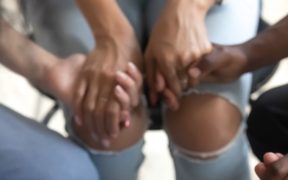
Equality, while fundamental to our way of life, is insufficient when implementing treatment approaches for people who use substances.

The process of healing takes many different individuals and systems actively integrating cultural lifeways into mental health and substance use treatment models.

Those who are two-spirit are described as having two souls in one body and as nonconforming to gender classifications of male or female.

The concept of cultural competence in treatment is difficult to gauge.

In these precarious times it appears that the only constants are uncertainty and constant change.

Combat veterans get wounded, disabled, or suffer from PTSD, and/or substance use disorders (SUDs). Some struggle when they return to civilian life and need professional help for these or other conditions.

What does it mean to actually have “the power of choice”? George DuWors examines the loss of choice in Alcoholics Anonymous and relapse.

In a time where many states have legalized marijuana, there are cases that present a stark reality for many still in prison with similar sentences.

Have you done everything you could to benefit from positive online reviews for your behavioral health care practice?

In our view, no better model exists for recovery-based chemical dependency and other compulsive disorder treatment programs than the Fourth Step of the Twelve Steps of Alcoholics Anonymous.


 Counselor Magazine is the official publication of the California Association of Addiction Programs and Professionals (CCAPP). Counselor offers online continuing education, article archives, subscription deals, and article submission guidelines. It has been serving the addiction field for more than thirty years.
Counselor Magazine is the official publication of the California Association of Addiction Programs and Professionals (CCAPP). Counselor offers online continuing education, article archives, subscription deals, and article submission guidelines. It has been serving the addiction field for more than thirty years.